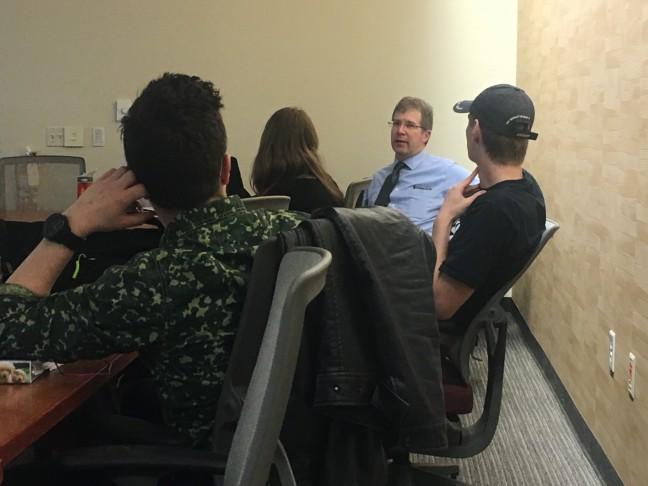Associated Students of Madison went back to the drawing board Tuesday after its resolution to ban additional classroom fees received negative feedback from university faculty.
Student Service Finance Committee Rep. Colin Barushok said he hoped course affordability, formally known as the textbook affordability resolution, would gain the executive committee’s support to ban and phase out additional course fees before Desire2Learn’s subscription expires.
But instead of support, the resolution was met with opposition and confusion from the Executive University Affairs Committee, a Faculty Senate subcommittee. Before ASM representatives could finish explaining the resolution, committee members jumped in with concerns, Barushok said.
Barushok described the committee as “nervous” and “very defensive” when the students began to describe how the resolution would phase out current course programs faculty use.
The committee believed the cost of additional classroom fees was not a campus-wide issue, Barushok said. They felt a campus-wide resolution would not help solve the problem.
“[The committee] said we shouldn’t go to the [Faculty Senate], and we got the impression that we shouldn’t have been there — it wasn’t the best meeting we’ve had and it was the first opposition we’ve encountered,” he said.
ASM Chair Madison Laning said opposition to the resolution stemmed from confusion regarding what the resolution is trying to accomplish. In addition, she said faculty are also trying to understand the new program Canvas, which aims to phase out many of the university’s preexisting programs.
Canvas is a new management program that brings educational resources like grades, quizzes, readings and attendance to one place, Laning explained.
Laning suggested ASM meet with the deans of schools during their biweekly meetings with their department heads. This way students don’t have to talk to each department individually to spread the goal of course affordability.
At the meeting, Steve Cramer, vice provost for teaching and learning, said if ASM went on record in support of the university’s move to Canvas, it could help reduce opposition.
Cramer said supporting Canvas could help ASM prepare to replace some of the programs the affordability resolution is hoping to phase out.
The ASM resolution’s language had included language to eliminate iClickers and programs like TopHat, but Cramer said there is not a way to quickly change using these programs. Eventually, though, policies could phase these programs out completely, he said.
“Right now the way the governance is set up … faculty have a tremendous amount of autonomy in their classrooms and what they require in those classrooms,” Cramer said. said.
But the digital landscape is changing so different technological aspects can be added onto programs that didn’t exist before, Cramer said.
He said ASM should continue to voice its concerns and be involved in what the digital future will look like for students in terms of course affordability.
“For you to take your concern to the university committee about these costs is legitimate — you shouldn’t feel bad about that,” Cramer said. “I think you should continue to voice your displeasure about these added fees. Voicing it by itself is not a strategy, but it is a start.”


